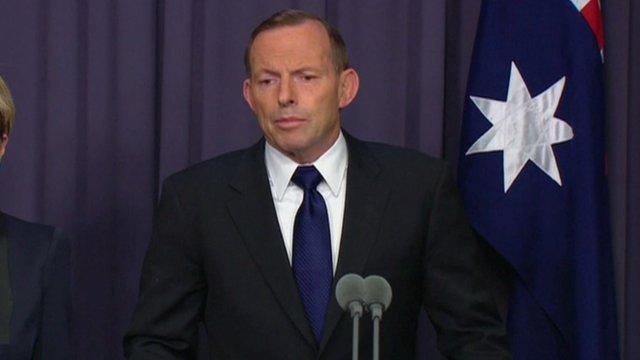Australia rethinks relationship with Indonesia after executions
- Published
Tony Abbott: "Australia deeply, deeply regrets these executions in Indonesia"
Australia is rethinking its relations with Indonesia following the execution of two Australian drug traffickers.
Australia's ambassador to Indonesia will return home this week after being recalled and ministerial contact with Indonesia has been suspended.
The government has also not ruled out cutting foreign aid to Indonesia.
Prime Minister Tony Abbott announced the diplomatic changes after an Indonesian firing squad killed Myuran Sukumaran and Andrew Chan.
Six people from other countries were also executed at the prison island of Nusakambangan early on Wednesday morning local time.
The bodies of Chan and Sukumaran have now been handed over to Australian authorities, according to the Australian Broadcasting Corp (ABC).
'Dark moment'
The two Australians were a key part of the so-called Bali Nine drug ring that was busted in 2005.
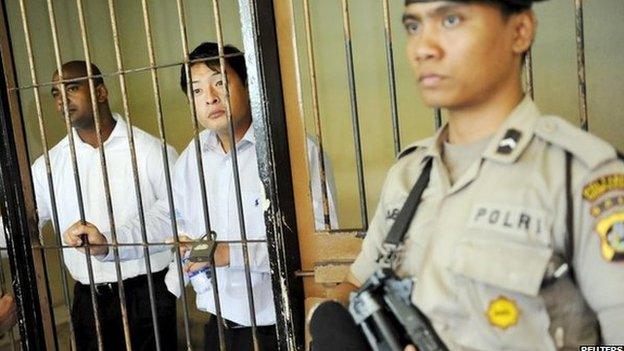
Australia lobbied hard for clemency for drug traffickers Chan and Sukumaran
Australia has waged a long diplomatic campaign for clemency for Sukumaran and Chan, who appeared to have rehabilitated themselves while in jail in Indonesia.
More recently, the Australian government urged Indonesia to delay the execution of the two men until a corruption investigation into their sentencing was complete.

Many Australians are upset about the execution of Chan and Sukumaran
Mr Abbott on Wednesday described the treatment of the Australians as "cruel and unnecessary" and said it was a "dark moment" in Australia's relationship with Indonesia.
"Cruel because both Andrew Chan and Myuran Sukumaran spent some decade in jail before being executed, and unnecessary, because both of these young Australians were fully rehabilitated while in prison," said Mr Abbott at a press conference.
"Australia respects the Indonesian system. We respect Indonesia's sovereignty but we do deplore what's been done and this cannot be simply business as usual," he said.
It is the first time Australia has withdrawn an ambassador from Indonesia, and the first such action after a country has executed an Australian citizen.
For example, it did not withdraw its ambassador when Australian drug smuggler Van Tuong Nguyen was executed in Singapore in 2005.
Foreign aid
"It is very unusual, indeed unprecedented, for an ambassador to be withdrawn so I don't want to minimise the gravity of what we've done," Mr Abbott said.
"Ministerial contacts have been suspended for some time. Once it became apparent that the executions were likely, ministerial contacts were suspended, and they will remain suspended for a period," he said.
In response to a question about foreign aid to Indonesia, Foreign Minister Julie Bishop said only that Australia's aid budget was under different considerations to diplomatic actions.
Australia gives Indonesia about A$600m ($480m; £313m) in aid annually.
The government has come under some pressure to divert that money to Nepal after it was struck by a devastating earthquake on the weekend.
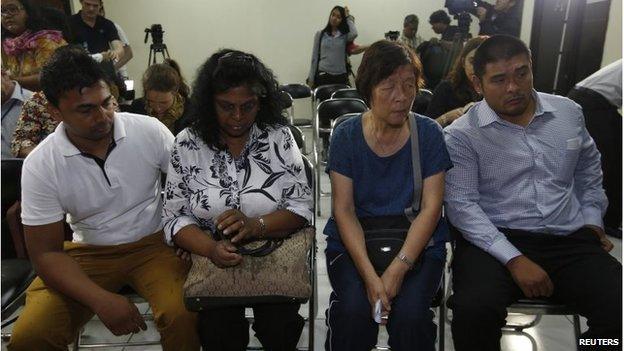
Chan and Sukumaran's families have thanked the Australian public and government for their support
Australia's opposition leader Bill Shorten and deputy leader Tanya Plibersek condemned the executions "in the strongest possible terms" and backed "a strong response from the Australian government".
"Our best hopes have been dashed and our worst fears realised," Mr Shorten and Ms Plibersek said in a joint statement.
"Indonesia has not just robbed two young men of their lives but robbed itself of two examples of the strengths of its justice system."
Family grief
In a statement, the families of Sukumaran and Chan said the two men had done all they could to make amends in the years since their arrest, including helping other people.
"They asked for mercy, but there was none. They were immensely grateful for all the support they received. We too, will be forever grateful," said the families.
Chan and Sukumaran, along with seven other Australians, were arrested in Bali in 2005 for trying to smuggle more than 18lb (8.2kg) of heroin from Indonesia to Australia.
The pair were later found to be the ringleaders of the group and sentenced to death. The other seven members of the "Bali Nine" are currently serving either life or 20 years in prison.
Indonesia has some of the toughest drug laws in the world and ended a four-year moratorium on executions in 2013.
It says it takes a hard line because of the country's own drugs problem - 33 Indonesians die every day as a result of drugs, according to Indonesia's National Narcotics Agency.
- Published28 April 2015
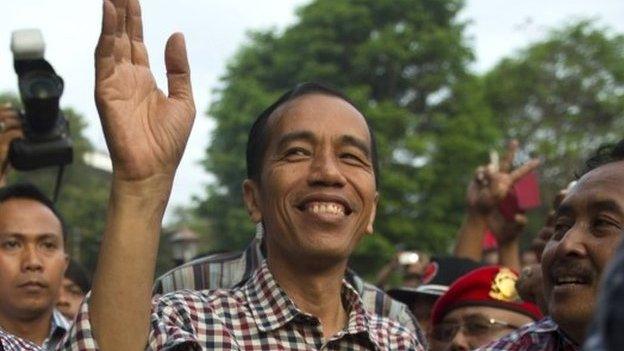
- Published8 February 2015
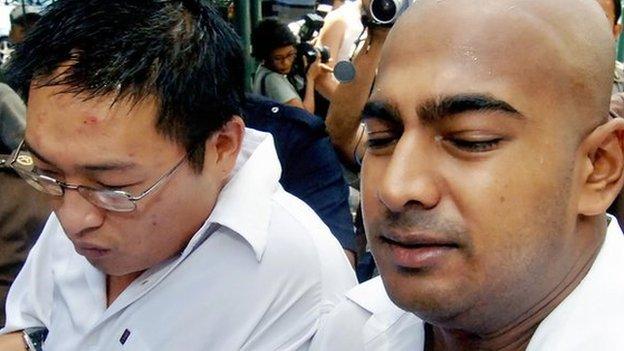
- Published29 April 2015
- Published28 April 2015
